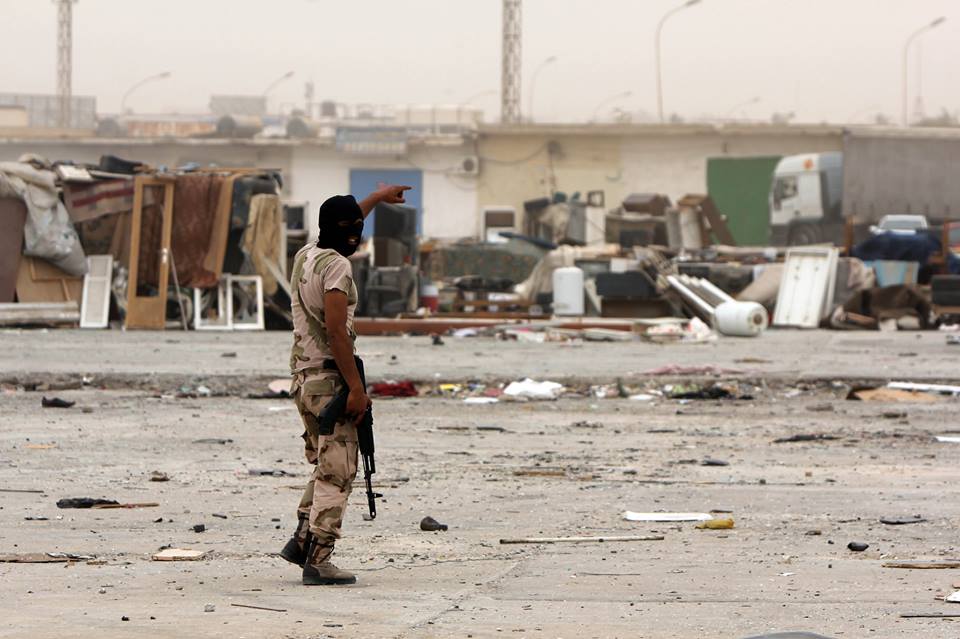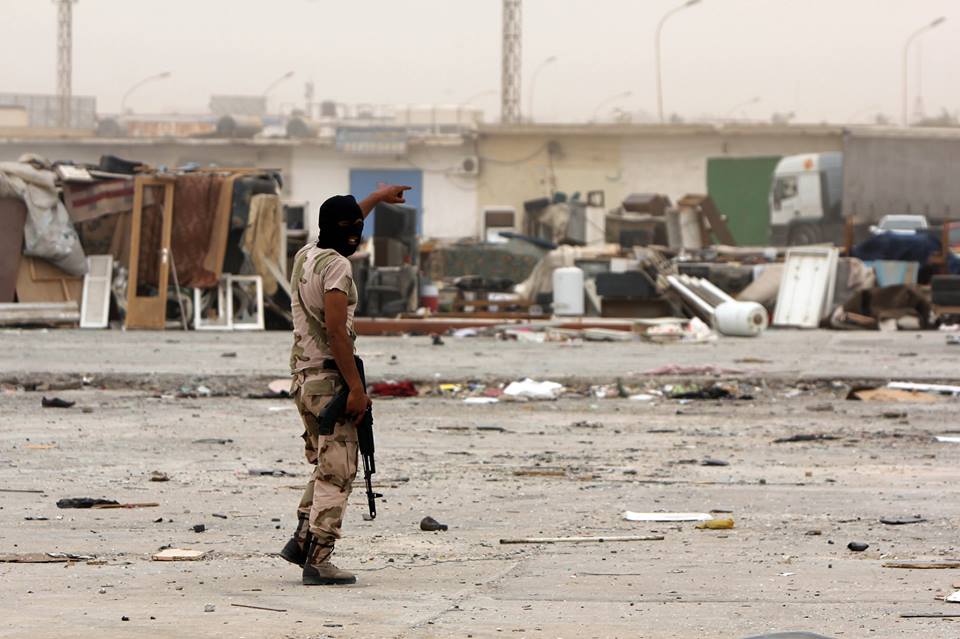By Maha Ellawati

Benghazi 18 May 2013:
Locals are hoping that Benghazi’s notorious Arms Bazaar in Sidi Hussein has finally been closed, after . . .[restrict]a raid by the Thunderbolt Battalion.
Traders in the bazaar in a large courtyard opposite the Nahr Eye Hospital, openly sold a range of light and medium weapons, including Kalashnikovs and handguns to anyone prepared to pay increasingly modest prices, ranging from LD 300 to LD 1,500. Ammunition was also available from LD 1 to LD 10.
Along with the weaponry, some merchants also peddled drugs and alcohol, the latter reportedly cost as little as LD 5 a bottle.
Before the Revolution, the courtyard had been known as the Jinihin (“Two Pound”) market, where a wide wide range of secondhand furniture, electrical appliances, automotive spare parts and many other items were bought and sold cheaply.
Its transformation into an arms bazaar at the end of the conflict, caused major concern to locals, not least staff in the hospital across the way. A doctor there told the Libya Herald: “ When someone bought a weapon, he would try it out first, and you can imagine the noise the weapon makes.
“The sound of gunfire,” explained the doctor, “terrifies patients and medical students in the hospital. I remember one time, when a man bought a gun at the market and started to try it out, many bullets hit the hospital walls.”
The authorities have sought on several occasions to root out the arms, drugs and alcohol traders, but after each raid, the merchants filtered back to resume their business. This time however, after the Thunderbolt Battalion moved in and seized weapons and contraband, they left behind ten mobile units to ensure that the market could return to its entirely innocent trade in secondhand goods.
It seems clear that the Thunderbolt unit, commanded by Colonel Wanis Abu-Khamadah acted after last week’s violence, which included the car bomb explosion outside Jala’a Hospital and the two days of attacks on the Al-Hadaiq police station, which left one person dead, a young man named as Fuad Mismari and the evacuation of the fire-damaged building. [/restrict]









